Business model.
VendPlay
VendPlay reimagines China’s marginalized mobile vending culture through a modular, community-driven platform. Addressing the decline of informal economies amid rapid urbanization, the project positions vendors as cultural anchors of urban vitality. Leveraging user research, iterative prototyping, and systemic design, it introduces adaptable “Box” units—mass-producible, cost-efficient modules that streamline operations while preserving cultural practices like textile tie-dyeing. By integrating modular hardware, service ecosystems (e.g., community-driven resource sharing), and brand strategies, the system elevates vendors’ social standing. Looking toward 2030, VendPlay envisions modular hubs reactivating streets as spaces of belonging, bridging economic resilience with cultural sustainability.
Project information
Growing up in China, the author developed cherished childhood memories shaped by the vibrant mobile vendors that once animated urban streets. These vendors not only provided immediate convenience to neighborhoods but also served as vital components of urban vitality. However, modernization has gradually marginalized such informal economies due to their perceived low image. The author argues that mobile vendors hold renewed significance in today’s increasingly alienating urban environments. This project aims to revive mobile vending culture by envisioning a 2030 scenario where a new brand and service model emerge. Centered on modular mobile tools designed for vendors, the proposal fosters self-managed, collaborative communities. By optimizing service quality and brand identity while maintaining low operational costs, the initiative seeks to empower vendors, enhance their livelihoods, and elevate their social standing.
Methods
Following extensive research and interviews to contextualize mobile vendors’ challenges, the design process explored diverse solutions through a modular lens. The author first investigated three distinct vending scenarios, analyzing spatial workflows and prototyping structural configurations for modular “vending boxes.” Iterative brainstorming sessions integrated hand-drawn sketches and 3D digital rough models in Blender to test architectural forms. Upon finalizing a design direction, the author refined the 3D model and developed
functional adaptations for culturally specific contexts: a tie-dye textile vendor’s workstation. Parallel to product development, the project expanded into business model study, service design, and brand identity (VI) tailored to community-driven ecosystems. The finalized concept was translated into a scaled physical model.
Result
The outcome, VendPlay (摊玩儿), is a futuristic mobile vending platform that provides affordable modular tools and community-management technologies. Its minimalist, function-oriented design enables cost-effective mass production and easy maintenance. The modular system facilitates physical and operational interconnectivity between vendors, encouraging collaborative self-governance within communities. Beyond optimizing hardware, the project reimagines mobile vending’s future through integrated business strategies and systemic design, proposing a new paradigm where vendors thrive as cultural innovators. Ultimately, VendPlay offers a provocative vision for revitalizing urban vibrancy while enriching future city dwellers’ lifestyles.
UID25 | Ziqi An – Grad project presentation
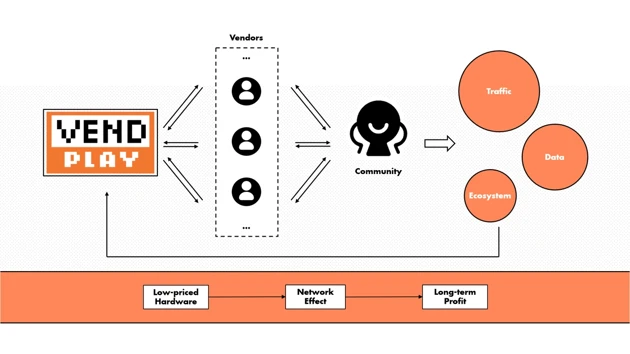
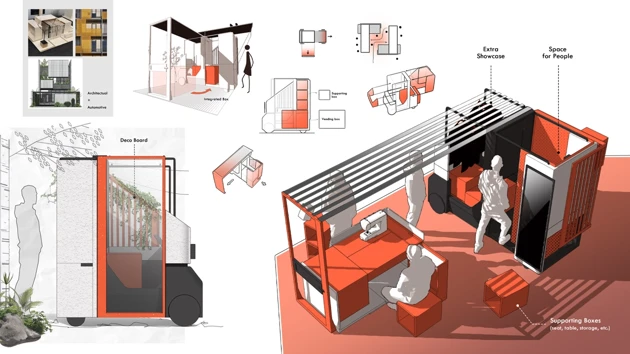
An aesthetic and structure ideation
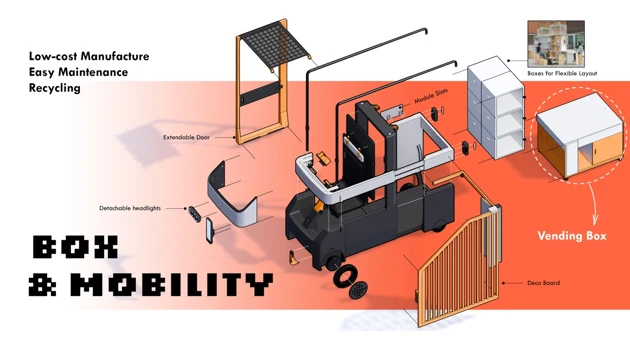
Modular mobility and box.
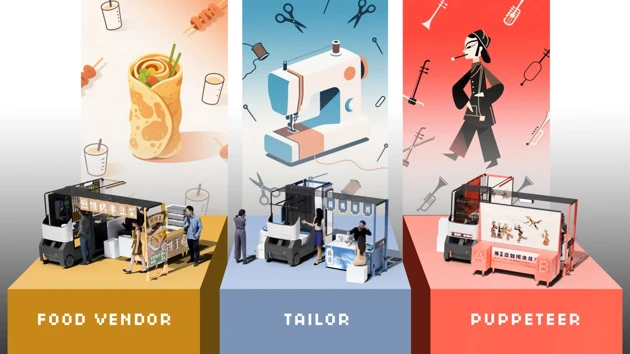
Three use cases.
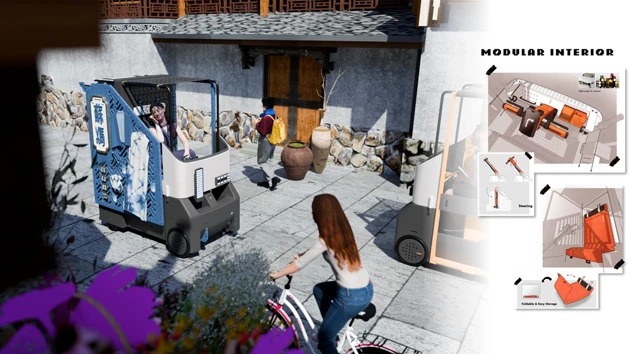
Traveling with small footprint in the street.
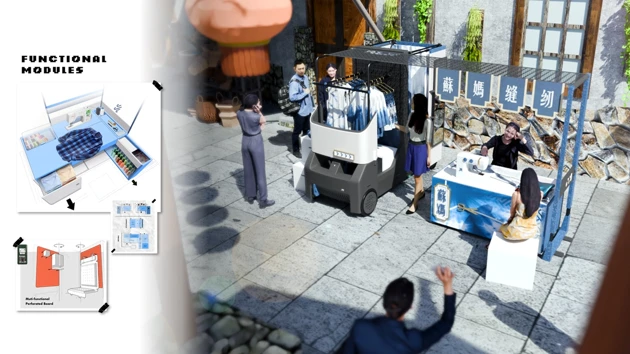
Tie-dye tailor’s scenario.
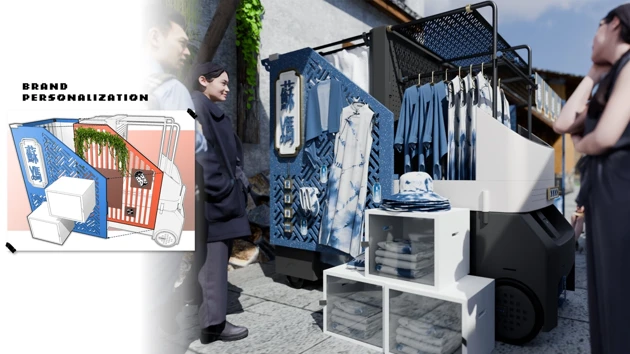
Side deco board provides opportunity for brand VI.

Flexible space arrangement.
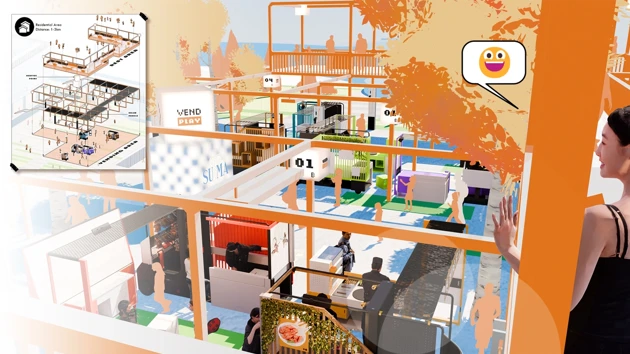
VendPlay collaborative community.
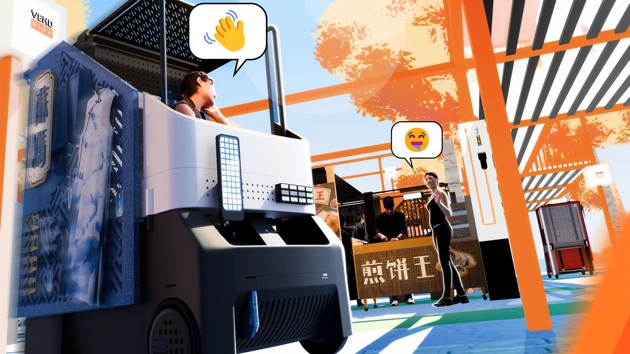
Boosting urban experience.












